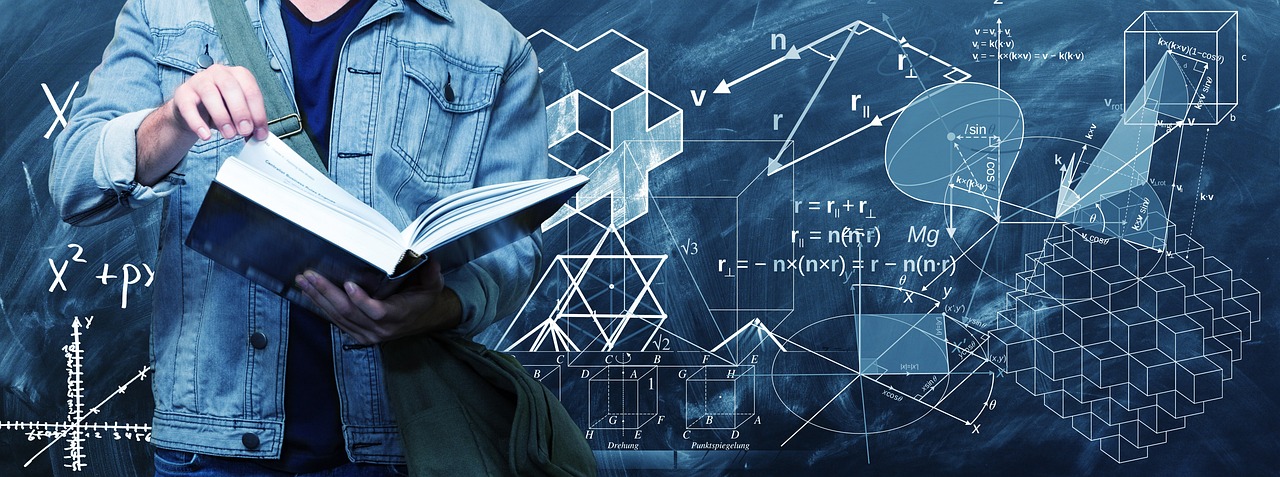
MASTER MATHEMATICAL METHODS IN PHYSICS
Strengthen your foundation in physics with our comprehensive Mathematical Methods in Physics course. Designed for students, researchers, and professionals in physics, engineering, and applied mathematics, this course covers essential mathematical techniques used to solve complex physical problems. Learn how to apply mathematical methods to various areas of physics, including mechanics, electromagnetism, quantum mechanics, and statistical physics.
COURSE HIGHLIGHTS:
- Differential Equations: Study the techniques for solving ordinary and partial differential equations used to model physical systems.
- Linear Algebra: Explore vector spaces, eigenvalues, eigenvectors, and matrix methods essential for quantum mechanics and electromagnetism.
- Fourier and Laplace Transforms: Learn how to use these transforms to solve problems in wave theory, heat conduction, and signal processing.
- Complex Analysis: Understand how complex functions and contour integration are used to solve problems in fluid dynamics, electromagnetism, and quantum field theory.
- Tensor Calculus: Study tensors and their applications in general relativity, fluid dynamics, and elasticity.
ENGAGING LEARNING EXPERIENCE:
- Interactive Modules: Engage with dynamic content through problem-solving exercises, case studies, and real-world applications of mathematical methods in physics.
- Achievement Rewards: Earn certificates, badges, and incentives as you complete course milestones.
- Practical Applications: Apply your knowledge in solving complex physics problems across various domains, from mechanics to electromagnetism.
- Support Opportunities: Access scholarships and mentorship from leading physicists and applied mathematicians.
- Career Growth: Gain recognition for roles in physics research, engineering, data science, and academia.
RELATED COURSES IN K4B:
- Advanced Quantum Mechanics: Build on the mathematical foundations to study more advanced topics in quantum physics.
- Classical Mechanics: Apply mathematical methods to solve problems in the motion of particles and rigid bodies.
- Electrodynamics: Use mathematical techniques to explore the behavior of electric and magnetic fields.
- Statistical Mechanics: Learn the mathematical framework behind thermodynamics and statistical physics.
- Computational Physics: Study numerical methods and their applications in solving complex physical problems.
SKILLS YOU WILL DEVELOP:
1. Differential Equations: Master methods for solving first- and second-order ordinary and partial differential equations, essential for modeling physical systems.
2. Linear Algebra: Learn to apply linear algebra techniques to quantum mechanics, electromagnetism, and systems of coupled equations.
3. Fourier and Laplace Transforms: Use Fourier and Laplace transforms to solve problems in wave propagation, diffusion, and electrical circuits.
4. Complex Analysis: Develop a deep understanding of complex functions, residues, and contour integration, and apply them to physical systems.
5. Tensor Calculus: Study tensors and their applications in advanced physics, including general relativity and fluid mechanics.
6. Variational Calculus: Use variational principles to derive equations of motion in classical mechanics and field theory.
7. Group Theory: Explore the mathematical foundations of symmetries in physics and their applications in quantum mechanics and particle physics.
8. Mathematical Modeling: Learn how to construct and solve mathematical models of real-world physical systems.
9. Computational Techniques: Use numerical methods to solve equations that cannot be solved analytically and perform simulations of physical systems.
10. Applied Mathematics: Gain proficiency in applying mathematical methods to diverse physical problems in both classical and modern physics.
11. Symmetry and Conservation Laws: Understand the role of symmetry in physics and how it relates to conservation laws and physical invariants.
12. Statistical Methods: Use statistical methods to analyze data and interpret physical phenomena in areas such as thermodynamics and quantum mechanics.
13. Data Interpretation: Develop skills to analyze experimental data using appropriate mathematical tools and techniques.
14. Scientific Communication: Effectively communicate complex mathematical methods and solutions in written and oral formats.
15. Problem-Solving: Solve a wide variety of physical problems using the appropriate mathematical tools and techniques.
WHY CHOOSE THIS PROGRAM:
- Interactive Learning: Engaging modules that make advanced mathematical concepts accessible and applicable to physics.
- Practical Relevance: Acquire skills that are directly applicable to a wide range of physics subfields, including classical mechanics, electromagnetism, and quantum theory.
- Comprehensive Support: Benefit from scholarships, mentorship, and networking opportunities to support your academic and professional growth.
- Holistic Curriculum: A well-rounded program that covers a broad spectrum of mathematical methods essential for solving physical problems.
- Career Advancement: Open doors to roles in academic research, engineering, data science, and industries requiring advanced mathematical skills.
ENROLL TODAY AND MASTER MATHEMATICAL METHODS IN PHYSICS!
Take the next step in your academic or professional journey by mastering the mathematical tools and techniques used in physics. Gain the skills to solve complex physical problems and apply mathematical methods to a wide range of physics disciplines. Join our Mathematical Methods in Physics program and enhance your ability to tackle advanced topics in physics.
Enroll now and embark on your journey toward excellence in mathematical physics!

